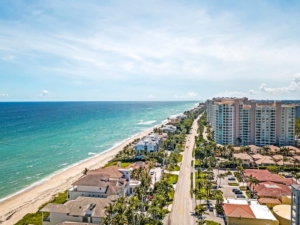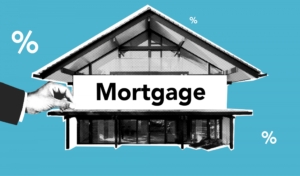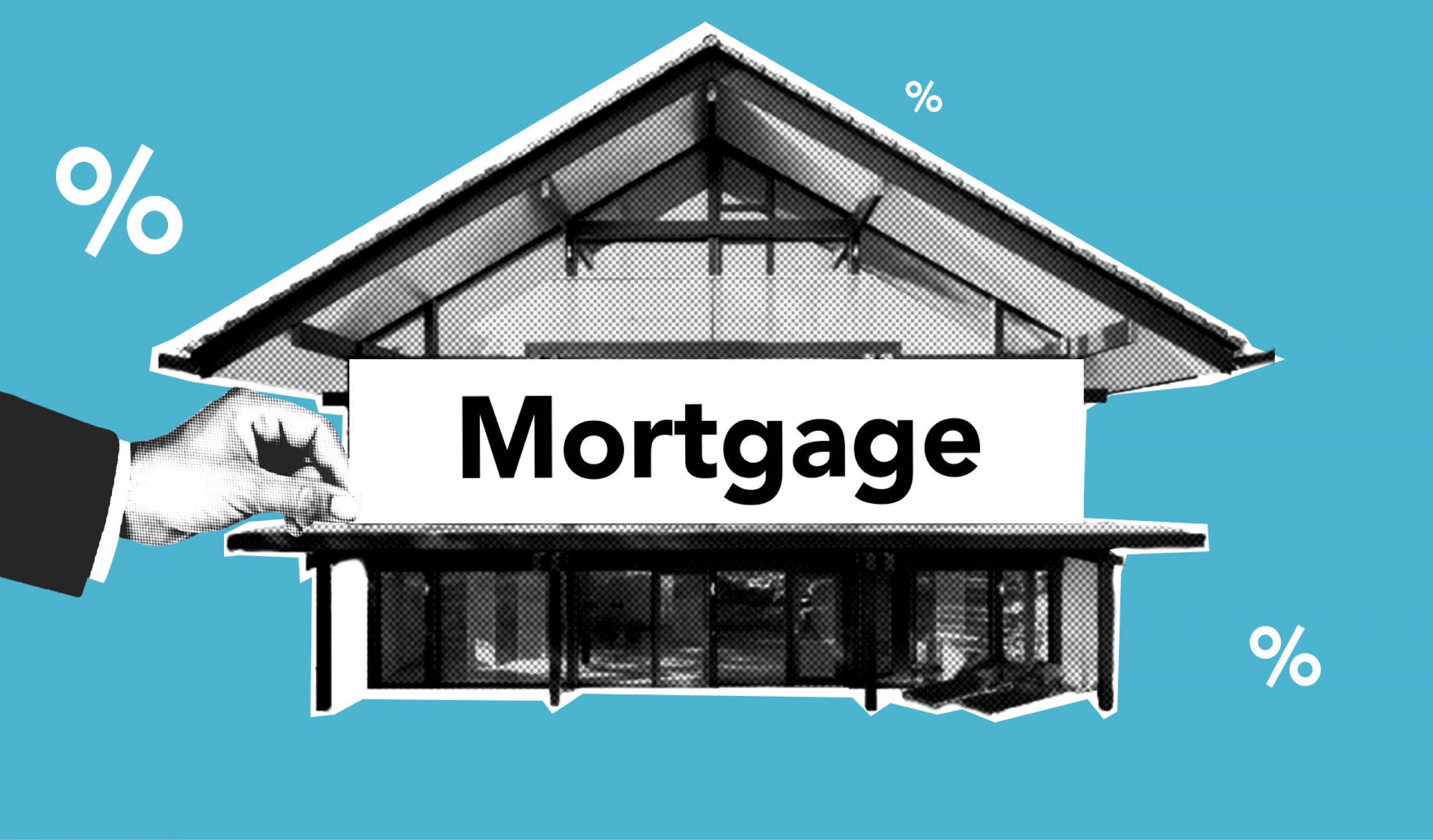Miami Real Estate Executive Faces Legal Challenge Over Office Loan Guarantee
High-Profile Commercial Real Estate Litigation Unfolds in New York Court
In a significant development highlighting the ongoing challenges in the commercial office sector, Miami-based real estate executive Rudy Prio Touzet has become embroiled in a multi-million dollar legal dispute with prominent commercial mortgage lender Ladder Capital. Court documents filed in New York State Supreme Court reveal that Touzet, founder and CEO of Banyan Street Capital, is being pursued for $3.6 million as a personal guarantor on a defaulted $38.5 million commercial mortgage.
The lawsuit, filed on March 13, centers around a 14-story office building in Rockville, Maryland that was co-owned by a joint venture between Touzet's Banyan Street Capital, Connecticut-based Building and Land Technology, and New York-based Green Hollow Capital Partners. According to court filings, the property's ownership entity failed to repay the mortgage when it reached maturity on January 6, triggering foreclosure proceedings and potential personal liability for Touzet.
The Anatomy of a Commercial Real Estate Default
The Maryland property at the center of this dispute represents a microcosm of the challenges facing commercial office assets in 2025. The 1.2-acre property, featuring a 14-story office tower, was acquired by the joint venture in 2021 when office valuations were significantly higher than current market assessments.
According to Montgomery County court records, the foreclosure auction for the property was held on April 28, though details regarding the final sale price and the purchaser remain undisclosed. This timeline illustrates the relatively rapid deterioration of the investment, moving from acquisition to default in approximately four years.
The loan agreement's structure included a personal guarantee provision that capped Touzet's potential liability at $4.7 million in the event of default. However, Ladder Capital's complaint seeks a reduced amount of $3.6 million, plus an additional $214,000 representing contractor lien resolution costs that the lender covered directly.
Neither Touzet nor legal representatives for Ladder Capital have responded to media inquiries regarding the litigation.
Banyan Street Capital's Market Position Amid Industry Headwinds
Despite this legal challenge, Banyan Street Capital maintains a substantial presence in the commercial real estate sector. Founded by Touzet, the Miami-based firm oversees an impressive portfolio valued at approximately $3 billion, encompassing 12 million square feet of commercial space throughout Florida and along the Eastern Seaboard.
In South Florida specifically, Banyan Street has maintained an active acquisition strategy, partnering with Miami-based Independencia Asset Management to purchase the Weston Corporate Center in 2021 for $52.3 million. This two-building office complex in Weston represents one of several strategic investments the firm has made in the region.
Industry analysts note that Banyan Street's diversified portfolio approach has historically provided some insulation from market volatility, though the current case underscores the personal financial exposure that can accompany executive-level guarantees in commercial real estate ventures.
The Broader Context: Commercial Office Market Challenges in 2025
This legal dispute emerges against a backdrop of persistent challenges in the commercial office sector nationwide. The post-pandemic shift toward remote and hybrid work models continues to exert downward pressure on office occupancy rates and valuations, particularly for older, less amenitized buildings in secondary locations.
Market data indicates that office buildings acquired near peak valuations between 2019-2022 have been particularly vulnerable to refinancing challenges as loans mature. When properties cannot be refinanced due to valuation gaps or insufficient income, defaults become increasingly common, as evidenced by the Maryland property in question.
Moreover, lenders have become increasingly hesitant to extend commercial mortgages without substantial equity injections or recalibrated terms, creating a challenging environment for owners facing loan maturities. This has resulted in a notable uptick in foreclosure proceedings across multiple markets, with secondary and tertiary office assets experiencing the most significant impact.
Ladder Capital's Recent Lending Activities Show Market Selectivity
While pursuing recovery in this case, Ladder Capital has remained active in other market segments that show stronger fundamentals. In a recent transaction highlighting this selective approach, the lender provided a substantial $51 million acquisition loan to Adam Neumann's Miami-based Flow and Israeli real estate firm Canada Global.
This financing supported the joint venture's $71.5 million purchase of a 16-acre former trailer park in El Portal, demonstrating Ladder Capital's continued appetite for residential development opportunities in high-growth markets, even while pursuing recovery on distressed office assets elsewhere in its portfolio.
The contrasting lending activities underscore the significant divergence in performance and outlook between office assets and residential development opportunities in the current market cycle.
Insights: Understanding Commercial Real Estate Guarantees
What exactly is a personal guarantee in commercial real estate financing?
A personal guarantee is a legal commitment made by an individual (often a principal or executive) to personally repay a portion or all of a loan if the borrowing entity defaults. This effectively creates recourse beyond the property itself, allowing lenders to pursue the guarantor's personal assets if necessary. These guarantees are typically negotiated as part of the loan terms and may include caps on liability, as seen in Touzet's case.
Why would an experienced real estate executive agree to a personal guarantee?
Personal guarantees often enable borrowers to secure more favorable loan terms, higher leverage, or access to financing that might otherwise be unavailable. In competitive acquisition environments or for particularly desirable assets, executives may accept these guarantees as a necessary component of winning transactions. As market conditions change, these calculated risks can sometimes result in personal exposure.
How common are personal guarantee enforcements in commercial real estate?
While personal guarantees are common in commercial real estate financing, their enforcement typically represents a last resort for lenders after exhausting property-level remedies through foreclosure. The frequency of enforcement actions tends to increase during market downturns or periods of sector-specific distress, as we're currently witnessing in the office market segment.
What options do guarantors have when facing enforcement actions?
Guarantors facing enforcement typically have several potential strategies, including negotiating reduced settlements, contesting the validity of the guarantee or the calculation of damages, or exploring bankruptcy protection in extreme cases. Many disputes are resolved through negotiated settlements before reaching final judgments.
How might this case impact future lending practices in commercial real estate?
This high-profile enforcement action may contribute to greater scrutiny of guarantee provisions in future commercial mortgage transactions, particularly in sectors facing structural challenges. Both lenders and borrowers may seek more nuanced guarantee structures that better account for market-specific risks and provide clearer pathways to resolution in distress scenarios.
As this litigation progresses, it will likely provide valuable insights into how courts interpret and enforce guarantee provisions in the context of commercial real estate investments facing fundamental market shifts and valuation challenges.












